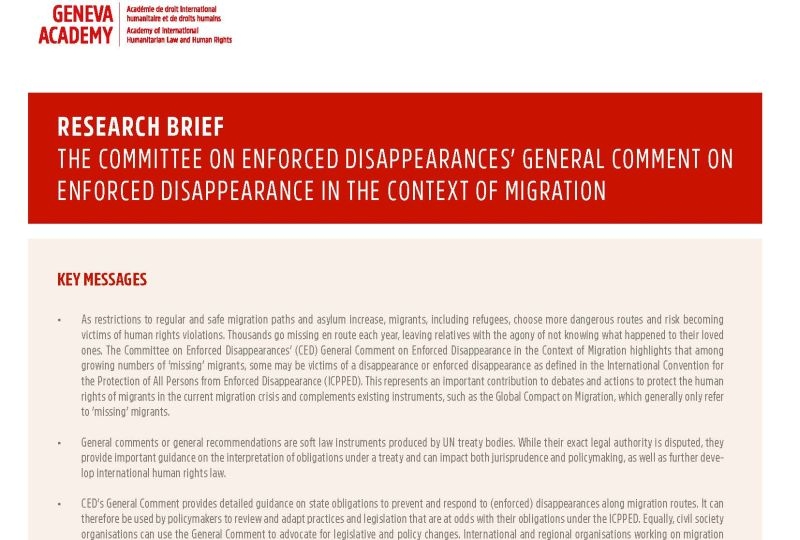The brief explains the rationale behind the first GC issued by the CED – which provides detailed guidance on states’ obligations to prevent and address (enforced) disappearances along migration routes – and comments on its content.
‘As restrictions to regular and safe migration paths and asylum increase, migrants, including refugees, choose more dangerous routes and risk becoming victims of human rights violations. Thousands go missing each year, leaving relatives with the agony of not knowing what happened to their loved ones. The CED GC on Enforced Disappearance in the Context of Migration highlights that among the growing numbers of ‘missing’ migrants, some may be victims of a disappearance or enforced disappearance as defined in the ICPPED. It therefore represents an important contribution to debates and actions to protect the human rights of migrants in the current migration crisis and complements existing instruments, such as the Global Compact on Migration, which generally only refers to ‘missing’ migrants’ underlines Lene Guercke.
‘Through this brief, we aim to equip all stakeholders engaged in this subject with additional tools and understanding for the ICPPED effective implementation in the context of migration. This effort extends from prior collaboration with the CED on this GC, as part of our TBMP. The Geneva Human Rights Platform played a crucial role in supporting the Committee during the drafting process by facilitating a one-week informal session and contributing background research on migration and enforced disappearances’ says Felix Krichmeier.
‘We will continue our support to TBs, not only in accompanying them to continuously improve and harmonize their working methods but also by providing substantive input on current issues of concern. Informal discussions of this nature and independent background research are key to ensure the effective functioning and strengthening of the UN TB system’ he adds.








